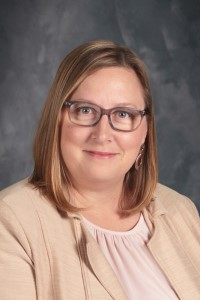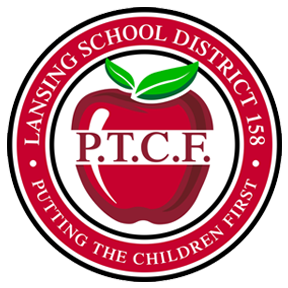Student Services |
|---|

Ms. Mary Pat Ford
Executive Director of Student Services
Mr. Shawn Walsh
Assistant Executive Director of Student Services
Mrs. Boylan
Student Services Secretary
Mrs. Robinzine
Student Services Secretary
Phone: 708-474-4868
School District 158 requires that all students with disabilities be given an appropriate education in the least restrictive environment (LRE). All District 158 children with disabilities will be educated with their grade level peers to the maximum extent possible. The Students Services Department provides a full continuum of services for students found eligible for special education. The continuum of services lays out the various special education services available from supplemental aids and services for children who remain in general education to special self-contained classes for those children who require more individualized, structured settings. This includes placements outside District 158 when necessary. A parent or guardian may request to view or receive a copy of his or her child’s related service logs at any time and Lansing Elementary School District 158 will provide those logs within ten business days of the request.
The following outlines the services offered by District 158. Any questions regarding the services should be addressed to Ms. Mary Pat Ford, Director of Student Services (708-474-4868).
EDUCATIONAL ENVIRONMENTS
Resource – With this placement, the child will receive specifically designed instruction in the resource teacher’s room for a part of the day. The child will be included in the regular education class to the maximum extent appropriate for the remainder of the day.
Co-Taught Classes – Students may benefit from enrollment in a class that is team‐taught by a general education teacher and a special education teacher. This is regarded as a general education environment.
Instructional Classes – With this placement, the child will receive specifically designed instruction in a special education classroom. With support, the child is included in the regular education class whenever appropriate.
ECHO Joint Agreement Therapeutic Day School Program– Lansing District 158 is part of the ECHO Joint Agreement. ECHO placements are utilized when a child‘s needs cannot be met with the supports available within the district's programs. Programs include: Adaptive Behavioral Learning Environment Program (ABLE); Communication Development Program (CD); Deaf/Hard of Hearing Program (DHH); Pace Program; Physically/Health Impaired - Visually Impaired Program; ECHO School; ECHO Satellite; ECHO Early Childhood. Programs are located at various sites throughout the south suburbs.
Private Therapeutic Day School – With this placement, the child will receive specifically designed instruction in a special school. When the IEP team recommends this placement, funding for tuition and transportation is provided through the school district.
.
PROCEDURAL RIGHTS AND SAFEGUARDS
Notice of Procedural Safeguards for Parents/Guardians of Students with Disabilities
CHILD FIND
For students who are currently attending our schools, the district uses a Problem-Solving process to provide early interventions to supplement research-based core instruction for academic or behavioral concerns. The building Problem Solving Team regularly reviews classroom performance and assists in connecting students to appropriate interventions. The data from this process then provides the foundation for a Multi-tiered Systems of Support (MTSS) approach, which may result in a referral for screening and a possible determination of eligibility for special education services. Please note that an MTSS process is specifically mandated by the State of Illinois in the determination of a Specific Learning Disability.
EARLY CHILDHOOD SPECIAL EDUCATION
Our Early Childhood Program supports students with identified developmental delays. This program works closely with the State of Illinois Early Intervention (EI) program and conducts preschool screenings throughout the year. Programs are located at Lester Crawl Primary Center.
Students are identified for special education through a child find process as required by federal and state guidelines. For students who are 3-5 years old, developmental screening and services are available through the Preschool Program.
Lansing School District 158 works in partnership with Easterseals to ensure that children ages 0-3 that reside within District 158’s attendance boundaries make the transition from Early Intervention successfully into the Illinois school system. If you suspect your child or family member who is under the age of 3 has a delay or disability, please contact the Child and Family Connections #12 Office to request an Early Intervention evaluation.
Child and Family Connections #12
Early Intervention
17300 Ozark Avenue
Tinley Park, IL 60477
Phone: 708-429-8231|
PARENTALLY PLACED PRIVATE, PAROCHIAL AND HOME SCHOOL SERVICES
A student who attends a private, parochial, or home school within the boundaries of Lansing School District 158 is eligible for consideration of a special education evaluation and services in accordance with the Individuals with Disabilities Education Improvement Act of 2004 (IDEA). IDEA 2004-Section 612 requires a public school district to utilize a portion of its Federal Part B special education funds in order to provide students with disabilities, who attend private schools within the boundaries of the district, the opportunity to equitably participate in special education and services offered by the district. When there is reason to believe that a student may have a disability requiring special education and related services, the student can be referred for a special education evaluation. A referral may be made by any concerned person, including school personnel, the parent/guardian of the student, an employee of a community service agency, professional having knowledge of a student’s problem, a student, or an employee of the Illinois State Board of Education. Students who attend these schools are eligible to receive a service plan if they are eligible for special education services.
Timely and Meaningful Consultation
Each year, the principals of the private schools in Lansing School District 158 are invited to a meeting at the District Office in which information about plans for working with students with disabilities in the upcoming school year are discussed. This meeting is called the Timely and Meaningful Consultation (TMC). At the TMC, information is shared pertaining to how students who are suspected of having one or more disabilities may access the district programs to assess the nature and scope of the disabilities.
Parents of students attending a private or parochial school or students who are home-schooled and need further information regarding services for their child should contact the Student Services Department at (708) 474-4868.
SECTION 504
District 504 Coordinator: Mr. Ken Byrne
Email: kbyrne@d158.net
Phone: (708) 474-6700
Section 504 is a federal law and part of the American with Disabilities Act designed to protect the rights of individuals with disabilities in programs and activities that receive Federal funding from the U.S. Department of Education. Section 504 provides: "No otherwise qualified individual with a disability in the United States . . . shall, solely by reason of her or his disability, be excluded from the participation in, be denied the benefits of, or be subjected to discrimination under any program or activity receiving Federal financial assistance . . . ." The school district must provide a free appropriate public education to district students who are eligible under Section 504. Instruction must be individually designed to meet the needs of those students as adequately as the needs of students without disabilities. An appropriate education under Section 504 requires that the services be effective and fair.
Although Section 504 does not require schools to develop an Individualized Education Program with annual goals, the school does provide written documentation for each student identified and provide accommodations and/or services under Section 504. A school evaluation team (if an evaluation is deemed necessary), consisting of persons knowledgeable about the student, will conduct an individual evaluation of a student initially referred for a Section 504 evaluation. The team will review all submitted documentation, current teacher reports, past records, and tests. Additional evaluation measures will be conducted by the School District if deemed necessary. Parental consent will be obtained prior to the initial evaluation completed by the District. An eligibility determination meeting will follow. If the student is eligible, a Section 504 plan will be developed and implemented. Section 504 plans will be reviewed annually, and reevaluations will occur periodically.
Section 504 of the Rehabilitation Act of 1973 (Section 504)
A person has a disability within the meaning of Section 504 of the Rehabilitation Act of 1973 if he or she has a mental or physical impairment, has a record of such impairment, or is regarded as having such an impairment, which substantially limits one or more major life activities. An impairment that is episodic or in remission is a disability if it would substantially limit a major life activity when active. The determination of whether impairment substantially limits a major life activity shall be made without regard to the ameliorative effects of mitigating measures (except for ordinary eyeglasses or contact lenses).
Students with disabilities who do not qualify for an individualized education program (IEP), as required by the federal Individuals with Disabilities Education Act (DEA) and implementing provisions of the School Code, may qualify for services under Section 504 of the federal Rehabilitation Act of 1973 if the child (i) has a physical or mental impairment that substantially limits one or more major life activities, (ii) has a record of a physical or mental impairment, or (iii) is regarded as having a physical or mental impairment.
HOMELESS ASSISTANCE
Homeless Liaison: Mr. Shawn Walsh
Email: swalsh@d158.net
Phone: (708) 474-6700
McKinney-Vento Homeless Assistance Act of 2001-Title X, Part C of the No Child Left Behind Act-Sec 725)
The term homeless children and youth-
A). Means individuals who lack a fixed, regular, and adequate nighttime residence; and
B). Includes-
(i) Children and youths who are sharing the housing of other persons due to loss of housing, economic hardship, or similar reason; are living in motels, hotels, trailer parks, or camping grounds due to the lack of alternative accommodations; are living in emergency or transitional shelters; are abandoned in hospitals; or a awaiting foster care placement;
(ii) Children and youths who have a primary nighttime residence that is a public or private place not designed for or ordinarily used as a regular sleeping accommodation for human beings
(iii) Children and youths who are living in a cars, parks, public spaces, abandoned buildings, substandard housing, bus/train stations, or similar settings, and
(iv) Migratory children who qualify as homeless for the purposes of this subtitle because the children are living in circumstances described in clauses (i) through (iii).
Resources for Families:
What You Need to Know to Help Your Child in School: A guide for Parents, Guardians, and Caregivers
http://center.serve.org/nche/downloads/parentbrochure_eng.pdf
The National Center for Homeless Education (NCHE) www.serve.org/nche
Contact: Diana Bowman, Director. Phone: (800)755-3277 Email: dbowman@serve.org
U.S. Department of Education, Education for Homeless Children and Youth Program www.ed.gov/programs/homeless/index.html
Contact: Gary Rutkin, Coordinator. Phone: (202)260-4412 Email: gary.rutkin@ed.gov
The National Association for the Education of Homeless Children and
TYPE I DIABETES INFORMATIONAL MATERIALS
https://www.isbe.net/Pages/Student-and-Family-Resources.aspx
https://www.isbe.net/Documents/Understanding-Type1-Diabetes-Parents-Guardians.pdf
INFLUENZA INFORMATIONAL MATERIALS
https://drive.google.com/file/d/1kN80OyaOHN5qX2vyj-QoPT4FrPSfiwQJ/view
SEXUAL ABUSE RESPONSE & PREVENTION RESOURCE GUIDE
https://www.isbe.net/Documents/Faiths-Law-Resource-Guide.pdf
